Mio is a popular water enhancer that promises to add flavor and convenience to your daily water intake. While many people enjoy the taste and convenience of Mio, some have raised concerns about the potential health effects of the product’s ingredients.
In this article, we will take a closer look at Mio and its ingredients, explore the potential health benefits of the product, and examine what health experts have to say about its safety. By the end of this article, you will have a better understanding of whether Mio is bad for you and whether it may be a healthy addition to your daily routine.
What is Mio?
Mio is a brand of liquid water enhancer that is designed to add flavor to water without the added calories and sugar of traditional sugary drinks. The product comes in small bottles and is available in a variety of flavors, ranging from fruity to more unusual options like energy or coffee flavors.
To use Mio, consumers simply squeeze a few drops of the liquid into a glass or bottle of water, then stir or shake to distribute the flavor. Mio is marketed as a convenient and customizable way to stay hydrated and enjoy flavored beverages without the added sugar or calories of other drinks.
Nutrition Facts of Mio
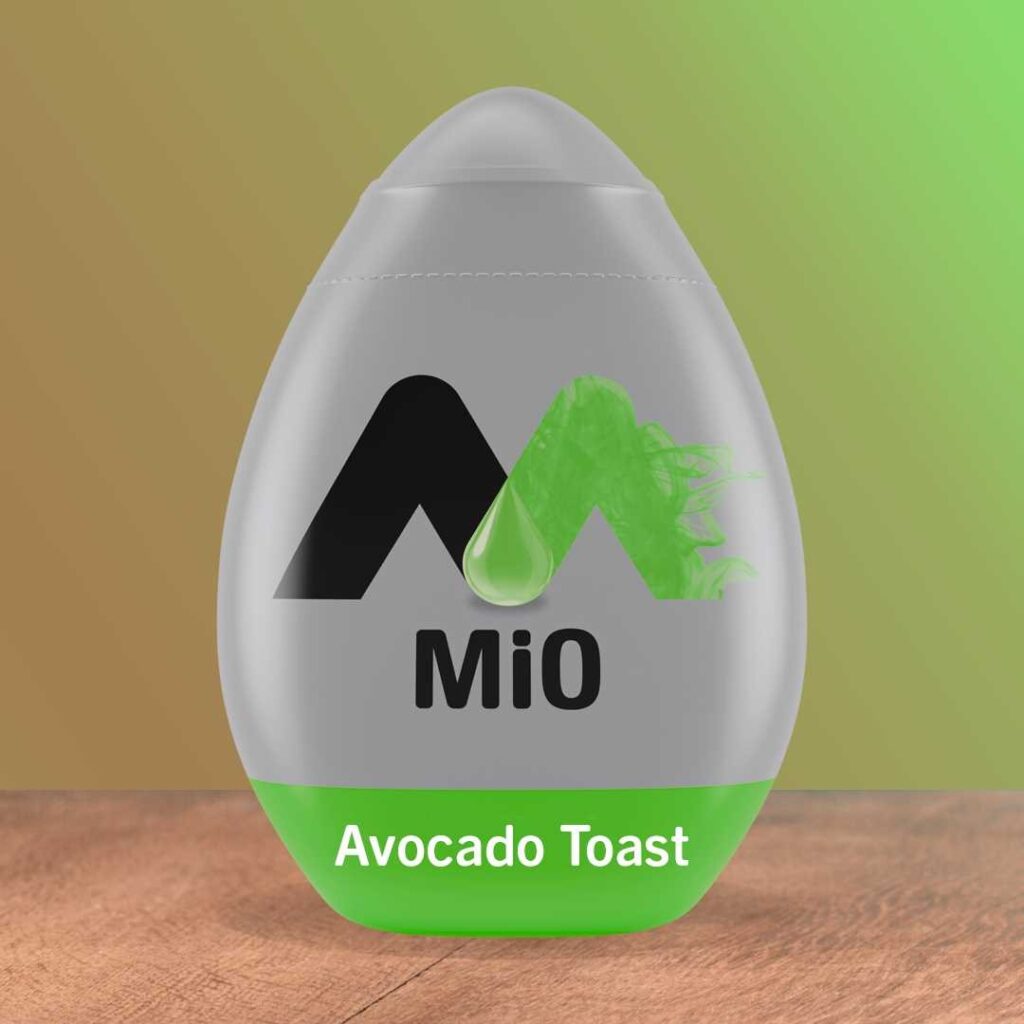
Mio is a liquid water enhancer that adds flavor to your water without adding calories or sugar. Here are the nutritional facts and ingredients in a typical serving of Mio:
- Serving size: 1/2 teaspoon (2 milliliters)
- Calories: 0
- Total fat: 0g
- Sodium: 0mg
- Total carbohydrate: 0g
- Total sugars: 0g
- Protein: 0g
Ingredients:
- Water: The main ingredient in Mio is water, which serves as a carrier for the flavorings and other ingredients.
- Citric acid: Citric acid is a natural preservative and flavoring agent that is found in many citrus fruits. It is commonly used in food and beverage products as an acidity regulator.
- Propylene glycol: Propylene glycol is a synthetic compound that is used as a solvent and preservative in many food and beverage products. It is generally considered safe by the FDA in small amounts.
- Caffeine: Some varieties of Mio contain caffeine, a natural stimulant that can help to increase alertness and energy levels.
- Sodium benzoate: Sodium benzoate is a preservative that is commonly used in food and beverage products. It is generally considered safe by the FDA in small amounts.
- Sucralose: Sucralose is a non-nutritive sweetener that is commonly used in sugar-free and low-calorie products. It is derived from sugar but is not metabolized by the body in the same way as sugar.
- Acesulfame potassium: Acesulfame potassium is another non-nutritive sweetener that is commonly used in low-calorie and sugar-free products. It is generally considered safe by the FDA in small amounts.
- Natural flavor: Mio contains natural flavors that are used to enhance the taste of the product. The specific natural flavors used in Mio can vary depending on the variety.
It’s important to note that Mio may contain other ingredients depending on the specific flavor and variety. Additionally, some people may have allergies or sensitivities to some of the ingredients in Mio, such as propylene glycol or artificial sweeteners.
If you have any concerns about the ingredients in Mio, it’s a good idea to check with a healthcare professional before consuming the product.
Pros and Cons
Here are some potential pros and cons of using Mio:
Pros:
• Convenient and portable: Mio is a small and portable product that can be easily added to water on-the-go.
• Customizable flavor: Mio allows consumers to add as much or as little flavor as they like, which can help people tailor their beverage to their preferences.
• Zero calories and sugar: Mio is marketed as a healthy alternative to sugary drinks, as it contains no calories or sugar.
Cons:
• Artificial ingredients: Mio contains artificial sweeteners, flavors, and preservatives, which some people may wish to avoid.
• Potential health risks: Some studies have suggested that consumption of artificial sweeteners like those in Mio may be associated with negative health effects like weight gain, metabolic syndrome, and disruption of gut microbiota, which can lead to poor blood sugar control, weakened immune system, and more.
• Overuse: Some people may be tempted to use too much Mio, which can lead to excessive consumption of artificial ingredients and may even cause digestive issues or other health problems.
Overall, the pros and cons of Mio depend on individual health needs and preferences. While Mio can be a convenient and customizable way to add flavor to water, it’s important to use the product in moderation and to read the ingredient list carefully to ensure that it aligns with your dietary goals and needs.
Health Benefits of Mio
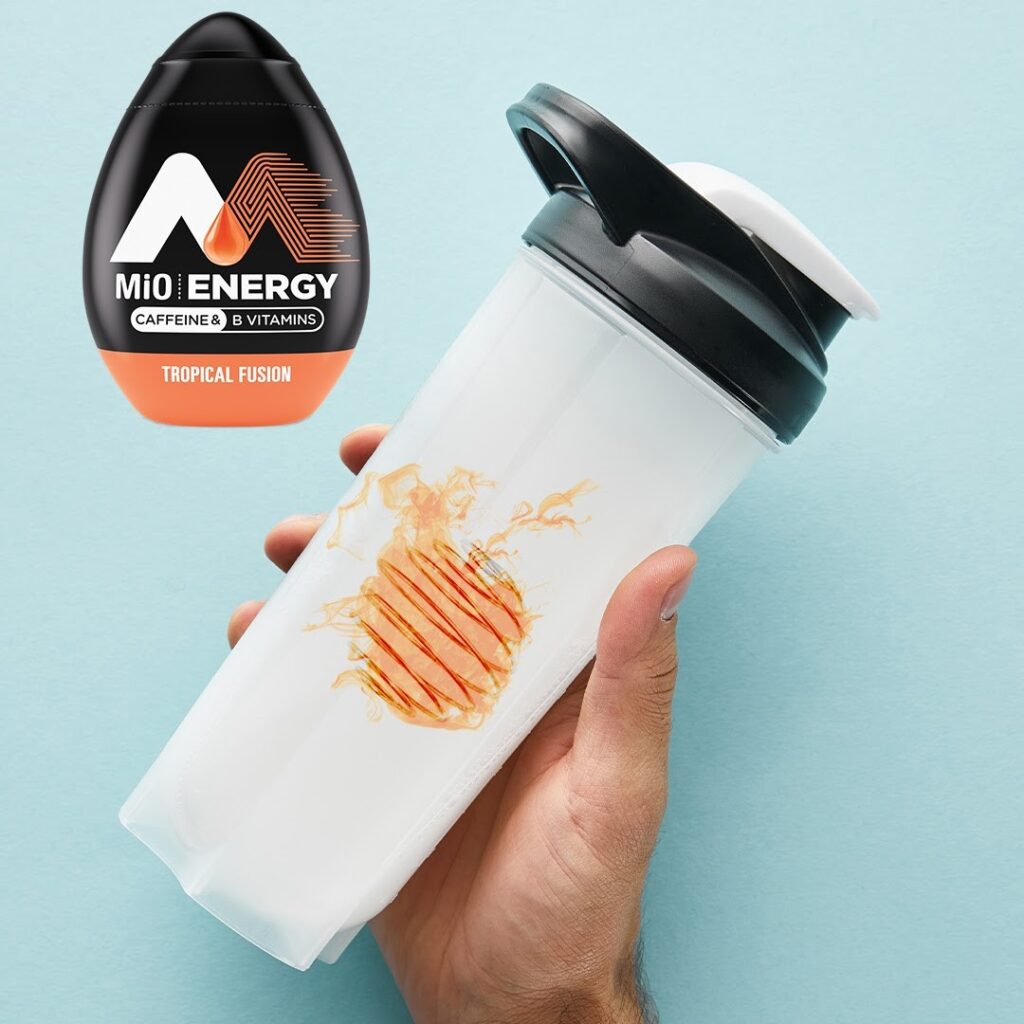
Mio is a liquid water enhancer that allows users to add flavor and sweetness to their water. While Mio may not offer significant nutritional value, it can encourage individuals to increase their water consumption, which can have numerous health benefits.
Studies found that increasing water consumption can improve overall diet quality and help with weight management. Another study found that drinking more water was associated with greater weight loss and improved body composition.
Additionally, Mio offers the convenience of portability and customizable flavor options, which can encourage individuals to stay hydrated throughout the day.
However, it is important to note that Mio contains artificial sweeteners, which some people may want to avoid due to potential health concerns. More research is needed on the long-term effects of artificial sweeteners on human health.
What Do Medical Experts Say About Mio?
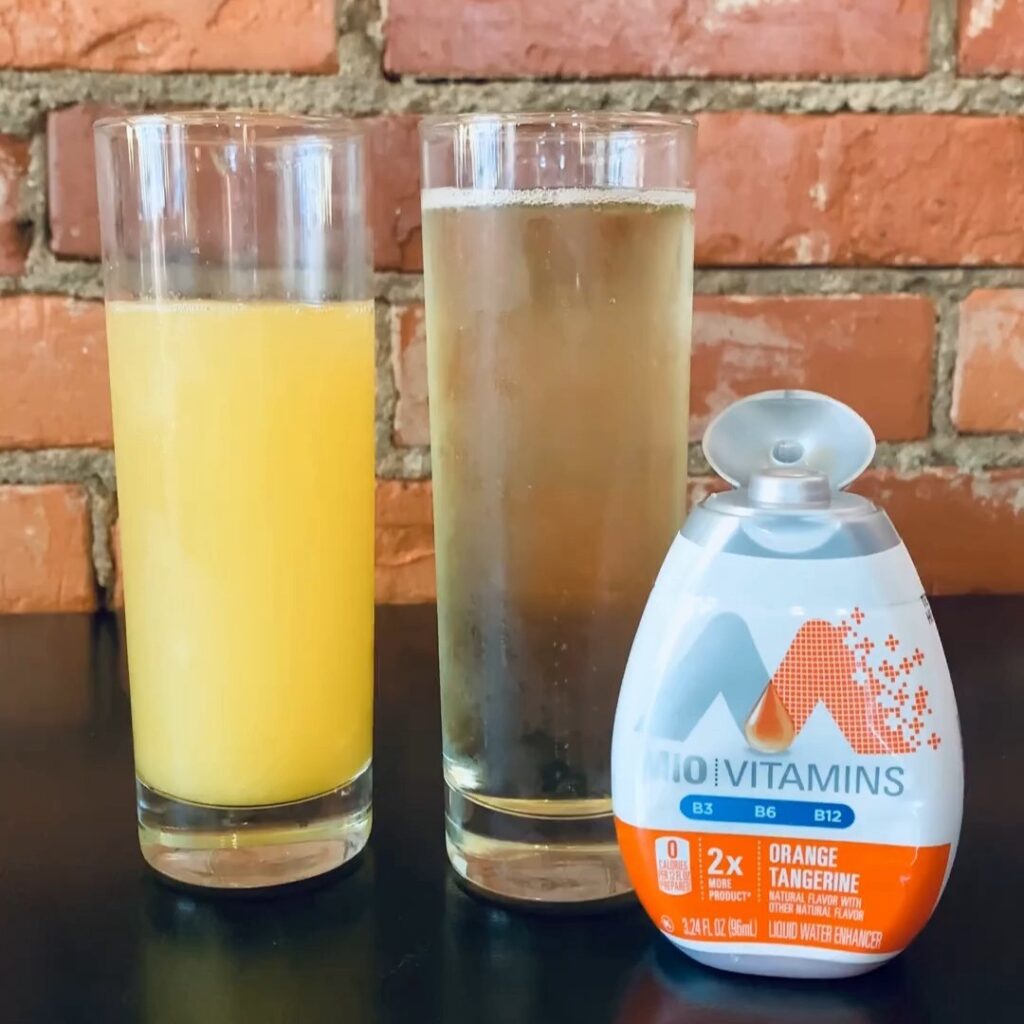
There is limited research specifically on the health effects of Mio, but some medical experts have commented on the safety and potential risks of the product’s ingredients. Here are a few quotes and citations from medical experts:
- “There are very few risks associated with the occasional use of Mio or similar products. However, as with any dietary supplement, moderation is key.”
- “Some people may be sensitive to certain ingredients in Mio, such as artificial sweeteners or preservatives. It’s important to be aware of any adverse reactions you may have and to speak with a healthcare provider if you have concerns.”
- “Propylene glycol is generally recognized as safe by the FDA in small amounts, but it can cause skin irritation or allergic reactions in some individuals.” – Dr. Arun Swaminath, director of the inflammatory bowel disease program at Lenox Hill Hospital in New York.
- “While Mio can add flavor and convenience to your water, it’s important to be aware of the ingredients and to choose products that work for your individual needs and preferences.” – Dr. Alex Caspero, a registered dietitian.
It’s important to note that these statements reflect the opinions of individual medical experts and may not necessarily apply to everyone. As with any dietary supplement, it’s a good idea to check with a healthcare professional before consuming Mio or any other product, especially if you have any underlying medical conditions or concerns.
Scientific Studies on Mio
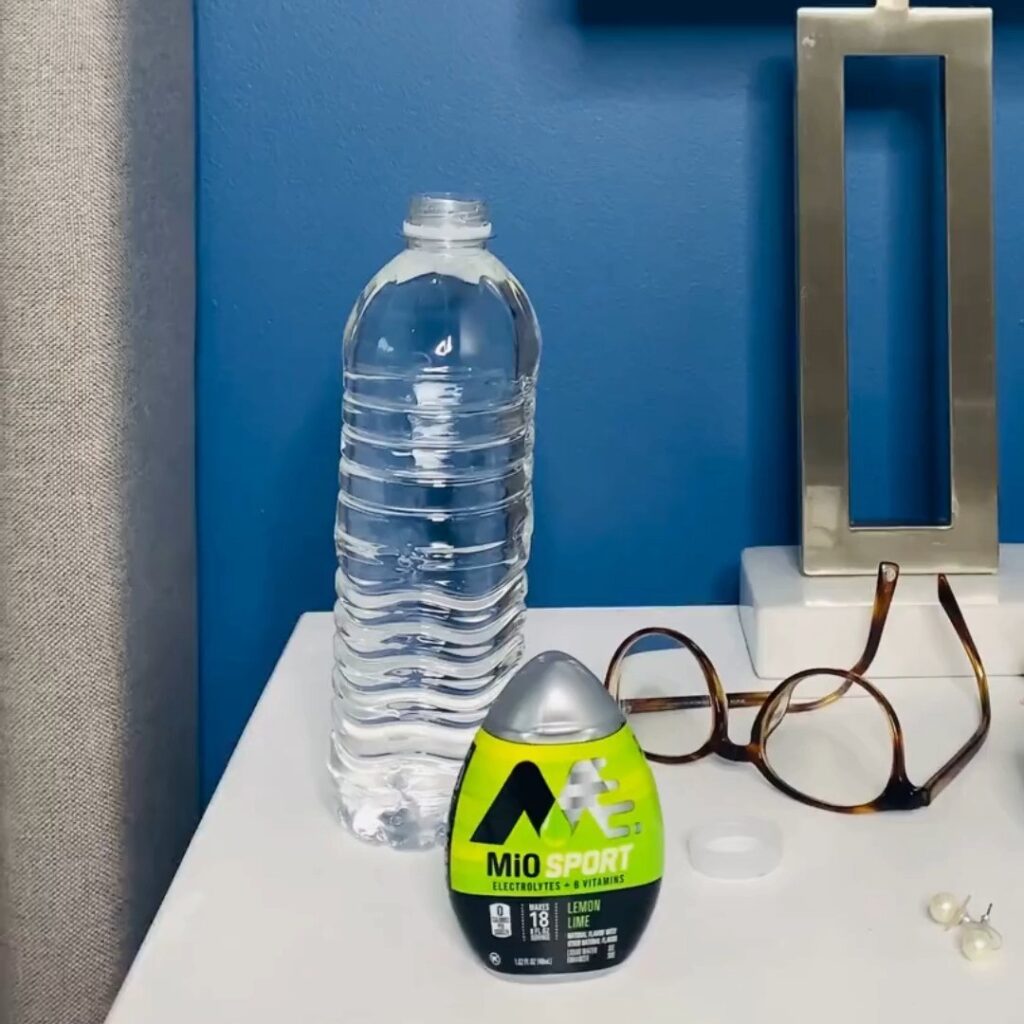
There are limited studies specifically on the health effects of Mio. Here are some studies that have investigated the potential health effects of some of the ingredients in Mio:
- A study published in the journal Food and Chemical Toxicology found that consumption of sucralose, one of the non-nutritive sweeteners used in Mio, was safe at levels up to 9 milligrams per kilogram of body weight per day.
- A study published in the National Library of Medicine found that caffeine can improve physical performance and endurance during exercise.
- A study published in the journal Nutrients found that consuming flavored water, such as water with Mio, was associated with increased water intake and improved hydration status in children.
- Citric acid, a common preservative and flavoring agent used in Mio, may have antioxidant and anti-inflammatory properties.
- A study published in the Journal of Clinical Psychopharmacology found that propylene glycol, another ingredient in Mio, had no significant effects on cognitive function or mood in healthy adults.
It’s important to note that these studies may not necessarily apply to the specific formulation or ingredients in Mio, and more research is needed to fully understand the potential health effects of the product.
Who Should Avoid Mio?
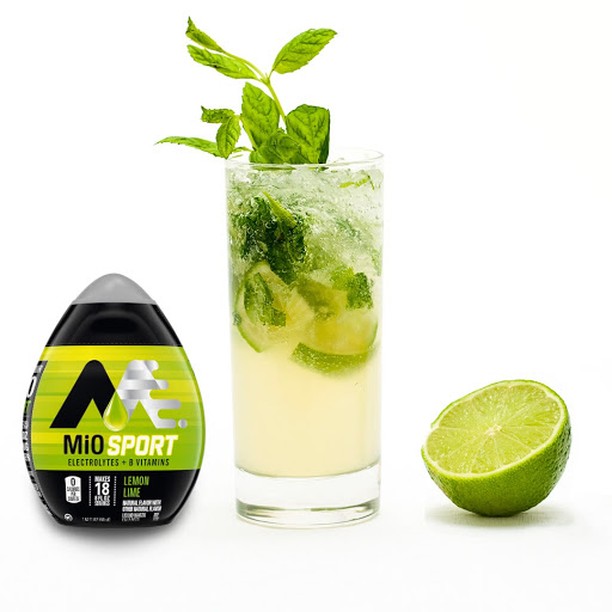
Some people may want to avoid Mio or limit their consumption due to the following reasons:
- Sensitivities or allergies to artificial sweeteners: Mio contains non-nutritive sweeteners such as sucralose and acesulfame potassium, which may cause allergic reactions or digestive discomfort in some individuals.
- Sensitivities to preservatives: Mio contains preservatives such as sodium benzoate and potassium sorbate, which may cause allergic reactions or sensitivity in some people.
- Risk of dental erosion: Mio is acidic and may contribute to dental erosion, especially if consumed in large amounts or over long periods. This can weaken tooth enamel and increase the risk of cavities.
- Risk of overconsumption: Mio may encourage people to drink more water, but it’s important to be mindful of the total amount of fluid and electrolytes consumed, especially if you have certain medical conditions such as kidney disease or heart failure.
Some studies have also raised concerns about the safety of some of the ingredients in Mio. For example, a study published in the journal Toxicological Research found that consumption of acesulfame potassium may have negative effects on the thyroid gland in rats. However, more research is needed to fully understand the potential health effects of these ingredients in humans.
It’s always a good idea to check with a healthcare professional before consuming Mio or any other dietary supplement, especially if you have any underlying medical conditions or concerns. If you experience any adverse reactions or symptoms after consuming Mio, it’s important to stop use and speak with a healthcare provider.
Alternatives to Mio
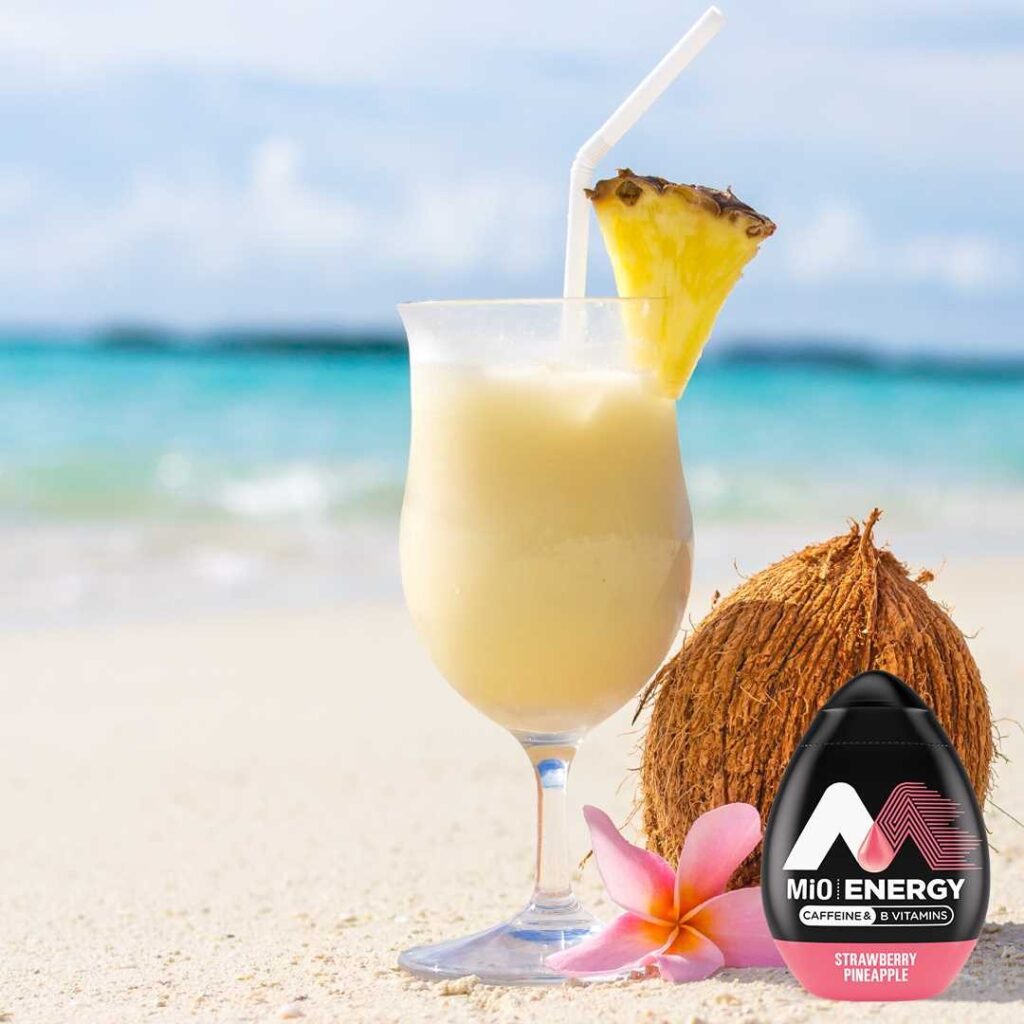
Here are three alternatives to Mio:
- Fruit-infused water: You can easily create your own flavored water by adding fresh or frozen fruit, such as berries, citrus, or melon, to your water. This adds natural sweetness and flavor without any artificial additives.
- Herbal teas: Herbal teas, such as mint, chamomile, or ginger, can be brewed and chilled to make a refreshing and flavorful alternative to plain water. You can also add lemon or honey for extra flavor.
- Coconut water: Coconut water is a natural source of electrolytes, which can help to support hydration and replenish minerals lost through sweat. It has a slightly sweet and nutty flavor and is available in many grocery stores and health food stores.
FAQ

What flavors does Mio come in?
Mio comes in a variety of flavors, including fruit flavors like berry, peach, and strawberry, as well as more unique flavors like chai latte and mocha.
Is Mio safe for children?
Mio is generally safe for children when used in moderation, but parents should be mindful of the amount of artificial sweeteners and other additives as they may cause some adverse effects on children when consumed excessively.
Can Mio be used to replace electrolytes lost during exercise?
Mio does not contain significant amounts of electrolytes like sodium, potassium, and magnesium, which are important for hydration during exercise. Other sports drinks or electrolyte supplements may be a better choice for athletes or those engaging in intense exercise.
Can Mio be used to sweeten coffee or tea?
Mio is primarily designed to be added to water, but it can be added to other beverages like coffee or tea to add flavor.
Is Mio vegan?
Mio does not contain any animal products and is generally considered vegan-friendly.
Can Mio help with weight loss?
Mio is a zero-calorie and sugar-free alternative to sugary drinks, which may help people reduce their calorie intake and promote weight loss as part of a healthy diet and exercise routine.
Is Mio gluten-free?
Mio does not contain any gluten-containing ingredients and is generally considered gluten-free. However, people with celiac disease or gluten sensitivity should always check the ingredient list to ensure that the product is safe for them to consume.
Conclusion: Is Mio Bad For You?
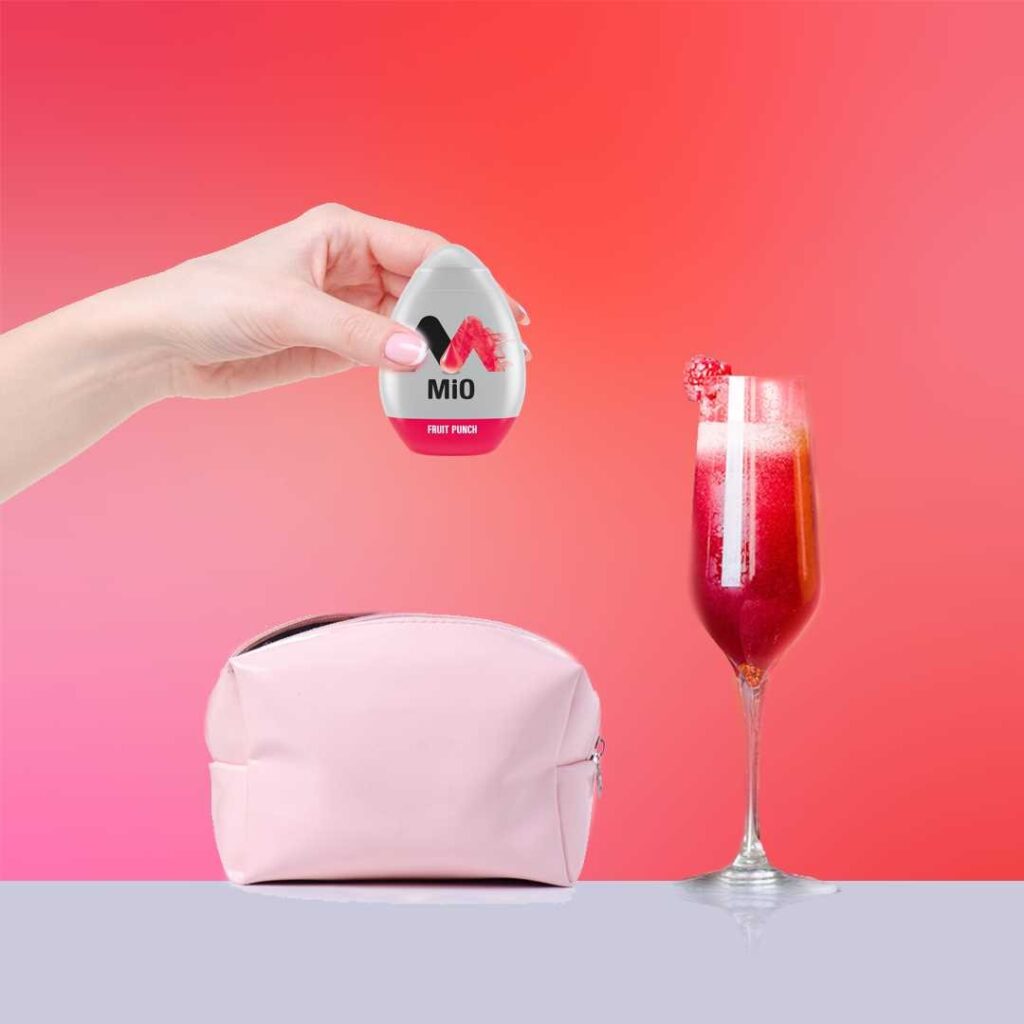
After examining the nutritional facts, potential health benefits, and expert opinions about Mio, it’s clear that the product is generally considered safe when consumed in moderation.
While some people may want to limit their consumption of Mio or avoid it altogether due to sensitivities or concerns about certain ingredients, the product has not been shown to have significant negative health effects in most individuals.
However, it’s important to remember that everyone’s health needs and preferences are unique, and it’s always a good idea to check with a healthcare professional before consuming Mio or any other dietary supplement, especially if you have any underlying medical conditions or concerns.
In addition, it’s important to consider that the long-term effects of regular Mio consumption are not fully understood.
In conclusion, Mio can be a convenient and flavorful way to add variety to your water intake, but it’s important to be mindful of the ingredients and to consume the product in moderation.
Ultimately, the decision to consume Mio or any other dietary supplement should be based on individual needs and preferences and should be made in consultation with a healthcare professional.
References:
- The Trustees of Princeton University. (n.d.). Caffeine | University Health Services. Princeton University. Retrieved April 13, 2023, from https://uhs.princeton.edu/health-resources/caffeine
- Suez J;Korem T;Zeevi D;Zilberman-Schapira G;Thaiss CA;Maza O;Israeli D;Zmora N;Gilad S;Weinberger A;Kuperman Y;Harmelin A;Kolodkin-Gal I;Shapiro H;Halpern Z;Segal E;Elinav E; (n.d.). Artificial sweeteners induce glucose intolerance by altering the gut microbiota. Nature. Retrieved April 13, 2023, from https://pubmed.ncbi.nlm.nih.gov/25231862/
- San Mauro Martín, I., Garicano Vilar, E., Romo Orozco, D. A., Mendive Dubourdieu, P., Paredes Barato, V., Rincón Barrado, M., Valente, A., Bentancor, F., Morales Hurtado, A. D., & Garagarza, C. (2017, June 6). Hydration status: Influence of exercise and Diet Quality. American journal of lifestyle medicine. Retrieved April 13, 2023, from https://www.ncbi.nlm.nih.gov.
- FJ;, A. K. E. S. (n.d.). [skin irritation caused by propylene glycols]. Der Hautarzt; Zeitschrift fur Dermatologie, Venerologie, und verwandte Gebiete. Retrieved April 13, 2023, from https://pubmed.ncbi.nlm.nih.gov/7085276/
- Kreutzer, A., Graybeal, A. J., Moss, K., Braun-Trocchio, R., & Shah, M. (2022, April 6). Caffeine supplementation strategies among endurance athletes. Frontiers in sports and active living. Retrieved April 13, 2023, from https://www.ncbi.nlm.nih.gov/pmc/articles/PMC9030507/
- Abdel-Salam, O. M. E., Youness, E. R., Mohammed, N. A., Morsy, S. M. Y., Omara, E. A., & Sleem, A. A. (2014, May). Citric acid effects on brain and liver oxidative stress in lipopolysaccharide-treated mice. Journal of medicinal food. Retrieved April 13, 2023, from https://www.ncbi.nlm.nih.gov/pmc/articles/PMC4026104/
- MJ;, S. S. J. M. (n.d.). A case study involving allergic reactions to sulfur-containing compounds including, sulfite, taurine, acesulfame potassium and sulfonamides. Food and chemical toxicology : an international journal published for the British Industrial Biological Research Association. Retrieved April 13, 2023, from https://pubmed.ncbi.nlm.nih.gov/24262485/
- Ehlen, L. A., Marshall, T. A., Qian, F., Wefel, J. S., & Warren, J. J. (2008, May). Acidic beverages increase the risk of in vitro tooth erosion. Nutrition research (New York, N.Y.). Retrieved April 13, 2023, from https://www.ncbi.nlm.nih.gov/pmc/articles/PMC2516950/
- Singh, N., Singh Lubana, S., Arora, S., & Sachmechi, I. (2020, August). A study of artificial sweeteners and thyroid cancer risk. Journal of clinical medicine research. Retrieved April 13, 2023, from https://www.ncbi.nlm.nih.gov/pmc/articles/PMC7430875/
- Effect of coconut water on measures of hydration and physical … (n.d.). Retrieved April 13, 2023, from https://www.researchgate.net
- Publications.aap.org. (n.d.). Retrieved April 13, 2023, from https://publications.aap.org
You might also like to check out some recently published reviews:

Leave a Reply